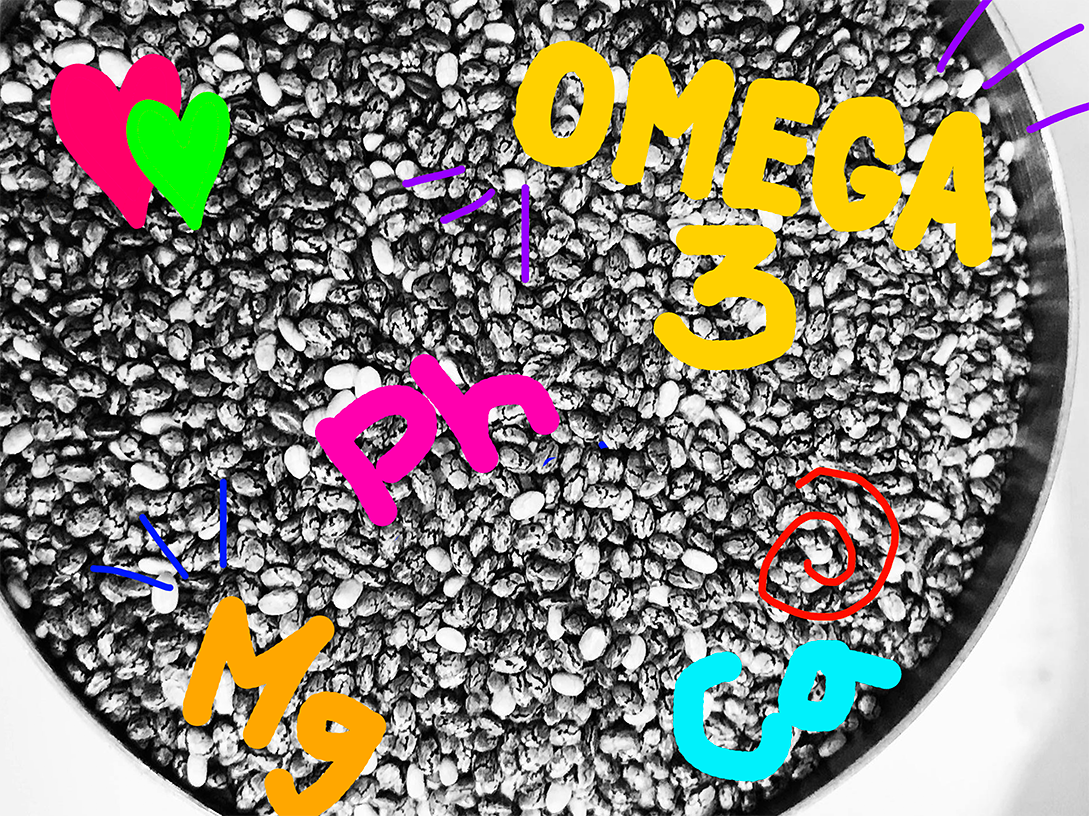In the world of superfoods, chia seeds benefits stand out for their impressive nutritional content and versatility. These tiny, nutrient-dense seeds, originating from the Salvia hispanica plant, were once prized by ancient Aztec and Mayan civilizations.
Today, they have become a popular staple in modern diets, thanks to their array of health benefits and ease of use.
Nutritional Profile of Chia Seeds
Though small in size, chia seeds pack a mighty punch in terms of nutrients. Just two tablespoons (about 28 grams) of chia seeds provide:
- Calories: 138
- Fiber: 11 grams
- Protein: 4 grams
- Fat: 9 grams (including 5 grams of omega-3 fatty acids)
- Calcium: 18% of the recommended daily intake (RDI)
- Magnesium: 30% of the RDI
- Phosphorus: 27% of the RDI
- Antioxidants: Rich in plant-based antioxidants
This nutrient profile makes chia seeds one of the most nutrient-dense foods on the planet, offering a broad range of vitamins, minerals, and healthy fats in a small package.
Key Chia Seeds Benefits for Health
Rich in Omega-3 Fatty Acids
Chia seeds are an exceptional plant-based source of omega-3 fatty acids, specifically alpha-linolenic acid (ALA). Omega-3s are essential fats that support heart health, help reduce inflammation, and improve cognitive function.
Gram-for-gram, chia seeds contain more omega-3s than most other plant foods, making them a great option for those who don’t consume fish or other animal products.
Excellent Source of Fiber
One of the benefits of chia seeds is their high fiber content. Just two tablespoons provide about 44% of the recommended daily fiber intake, which supports digestive health, helps regulate blood sugar, and promotes a feeling of fullness.
The soluble fiber in chia seeds absorbs water and expands in the stomach, which can help control appetite and support weight management.
Promotes Heart Health
Chia seeds contain a unique blend of fiber, omega-3 fatty acids, and antioxidants, such as quercetin, that work together to support cardiovascular health.
Their anti-inflammatory properties may also reduce the risk of heart disease by improving blood pressure and promoting healthier blood vessels.
Supports Strong Bones
Chia seeds are a rich source of calcium, magnesium, and phosphorus—all critical minerals for maintaining strong, healthy bones.
Just two tablespoons provide about 18% of the RDI for calcium, making chia seeds a great option for people who are lactose intolerant or follow a plant-based diet.
These minerals also play a role in muscle function and energy production, further boosting overall physical health.
How to Use Chia Seeds in Your Diet
Chia seeds are incredibly versatile and can easily be incorporated into a wide variety of meals and snacks. Their neutral flavor allows them to blend seamlessly into both sweet and savory dishes. Here are some simple ways to include chia seeds in your diet:
Chia pudding. Mix chia seeds with your favorite milk (plant-based or dairy) and let them sit in the fridge for a few hours or overnight. The result is a creamy, pudding-like consistency that you can flavor with fruits, spices, or sweeteners.
Smoothies. Add a tablespoon of chia seeds to your smoothies for an extra nutrient boost. They blend well with fruits and greens, providing added texture and thickness.
Baked goods. Incorporate chia seeds into homemade bread, muffins, or granola bars. They add a subtle crunch and boost the fiber content of your baked goods.
Egg substitute. Use chia seeds as a vegan egg substitute in baking. Simply mix 1 tablespoon of chia seeds with 3 tablespoons of water and let it sit for a few minutes until it forms a gel. This mixture can replace eggs in many recipes.
Salads and yogurt toppings. Sprinkle chia seeds over salads, yogurt, or oatmeal for added texture and nutrition. Their crunch complements fresh vegetables and fruits perfectly.
The Importance of Soaking Chia Seeds
Though chia seeds can be consumed raw, soaking them in liquid allows them to expand and form a gel-like coating. This process improves their digestibility and nutrient absorption.
When chia seeds are soaked, their fiber becomes more soluble, making them gentler on the digestive system and easier for your body to absorb the essential nutrients they contain.
To soak chia seeds, simply mix one part chia seeds with 10 parts water or any other liquid (such as almond milk or coconut water). Allow them to sit for at least 15-30 minutes, though overnight soaking works best if you plan to use them in recipes like chia pudding.
Chia Seeds in Special Diets
For vegans and vegetarians. Chia seeds are a rich source of plant-based protein, omega-3 fatty acids, and calcium, making them an ideal addition to a vegan or vegetarian diet.
For gluten-free diets. Naturally gluten-free, chia seeds are a safe and nutritious option for those with celiac disease or gluten intolerance.
Potential Side Effects
While chia seeds are generally safe for most people, consuming them in large quantities without adequate water can cause digestive discomfort, such as bloating or constipation.
It’s recommended to drink plenty of fluids when eating chia seeds to ensure proper digestion. Those with a history of food allergies or digestive conditions should consult a healthcare provider before incorporating chia seeds into their diet.
Chia Seeds… In Short
Chia seeds may be small, but their impact on health is significant. With their impressive nutrient profile—rich in fiber, omega-3s, protein, and essential minerals—chia seeds are a versatile, easy-to-use superfood that can elevate your overall health.
Whether you’re looking to improve digestion, support heart health, or boost your nutrient intake, chia seeds are a simple yet effective way to enhance your diet.
By making chia seeds a regular part of your routine, you’ll be taking a small but meaningful step towards a healthier, more balanced lifestyle.
